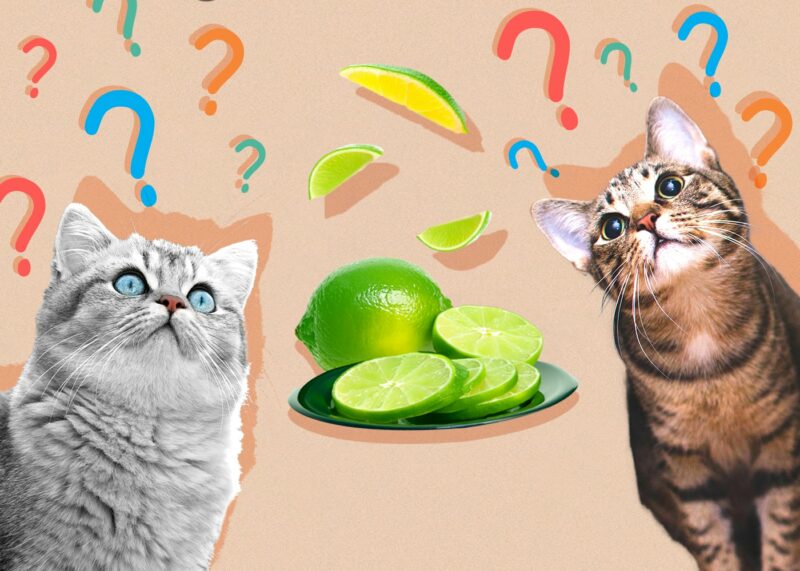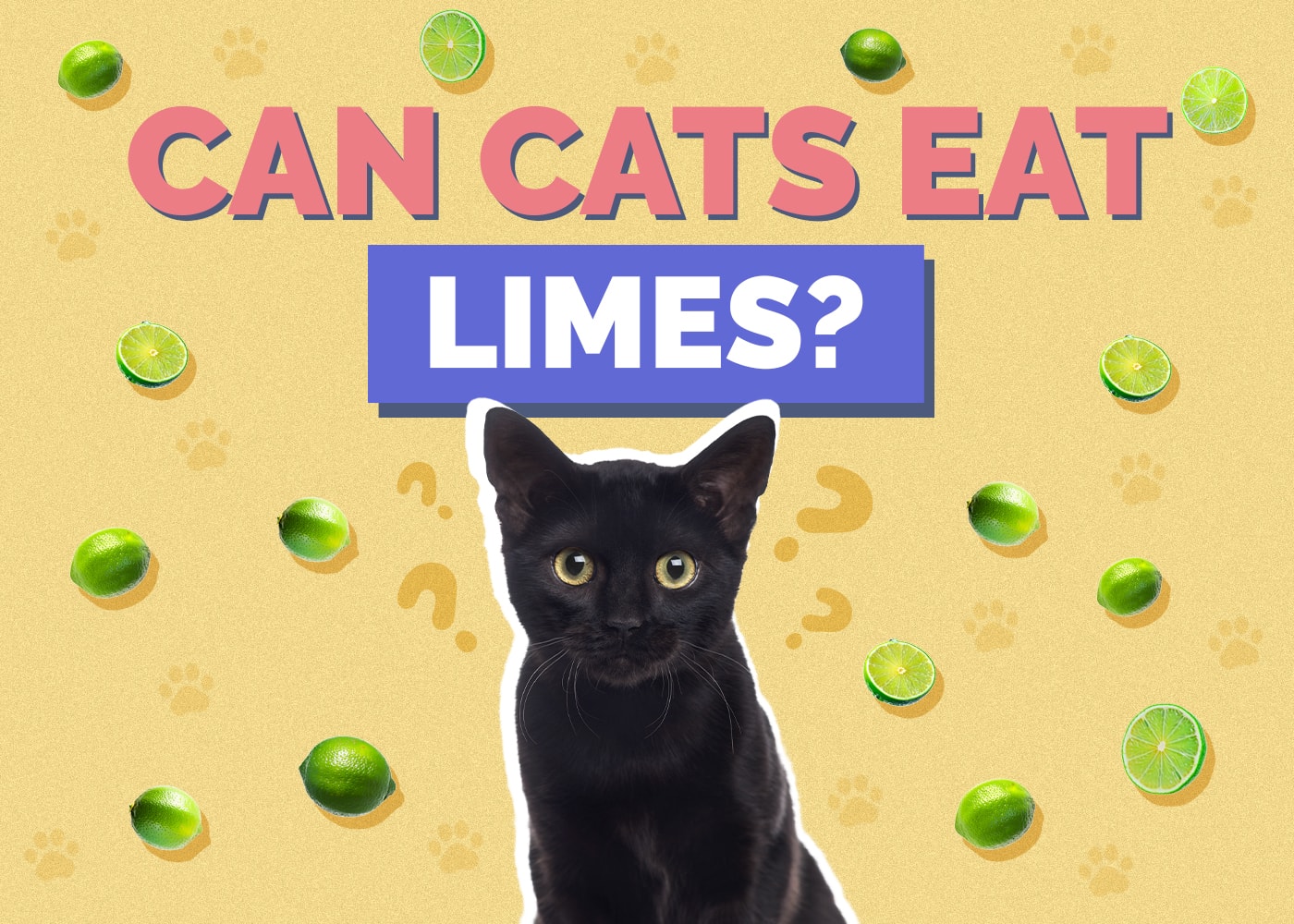No, cats should not eat lime as it can cause kidney failure, vomiting, diarrhea, inflammation of the pancreas, severe dehydration, and depression. Limes are not nutritious for cats and can be harmful due to their high citric acid content.
Citrus fruits, including lime, contain essential oils that can irritate a cat’s nervous system and lead to tremors, seizures, or even death in large quantities. While cats tend to avoid eating citrus fruits due to their strong smell, it is best to keep limes and other citrus fruits away from cats to ensure their safety and wellbeing.
Can Cats Eat Lime?
Cats are curious creatures and love to explore new smells, tastes, and textures. As a cat owner, you may have wondered if it’s safe for your feline friend to taste a lime. In this article, we will explore the potential health risks of cats consuming lime and discuss the toxicity of lime to cats.
Citrus fruits like lime contain citric acid and essential oils that can be irritating to a cat’s nervous system. While cats may have a natural aversion to strong, citrusy smells, they can still be curious enough to nibble on a lime. However, it’s important to note that ingesting lime can lead to various health issues for your cat.
One of the potential health risks of cats consuming lime is gastrointestinal discomfort. The citric acid in lime can cause gastrointestinal upsets, such as vomiting and diarrhea, in cats. Additionally, the ingestion of a large amount of lime could lead to further complications, including inflammation of the pancreas and severe dehydration.
Another concern is that limes are not very nutritious for cats. They primarily consist of water with some added sugar, which is why they taste so good to humans. However, cats have different dietary requirements, and consuming lime does not provide any significant nutritional benefits for them.
The stems, leaves, seeds, and peels of citrus fruits are especially dangerous to cats due to their higher concentrations of citric acid and essential oils. Ingesting these parts of citrus fruits can lead to depression of the central nervous system in cats, resulting in symptoms such as tremors, seizures, or even death.
It’s noteworthy that cats tend to have a natural aversion to citrus smells, which works in their favor as it helps prevent them from ingesting these potentially harmful fruits. However, it’s essential for cat owners to be aware of the risks and keep limes and other citrus fruits out of their feline friends’ reach.
While lime itself can be toxic to cats, it’s usually the rind of the lime that causes the most problems, rather than the flesh or the juice. The rind contains higher concentrations of essential oils, which can be more harmful to cats if ingested.
If you suspect that your cat has consumed lime or experienced any symptoms after coming into contact with it, it’s important to consult with your veterinarian immediately. They will be able to assess the situation and provide the necessary guidance or treatment.
In conclusion, it’s best to keep limes and other citrus fruits away from your feline companion to ensure their health and well-being. If you have any concerns about your cat’s diet or suspect they have ingested something harmful, always consult with your veterinarian for professional advice.

Credit: www.catster.com
Potential Health Risks
Kidney Failure
If you’re wondering whether cats can eat lime, it’s important to understand the potential health risks it poses to them. Lime can lead to kidney failure in cats, which is a severe health condition that requires immediate veterinary attention. The high levels of citric acid found in lime can cause damage to a cat’s kidneys when ingested in large amounts. This can lead to symptoms such as increased thirst, frequent urination, loss of appetite, and lethargy. It’s crucial to keep lime and other citrus fruits away from your feline friend to prevent kidney damage and ensure their overall well-being.
Digestive Issues
Lime consumption can also result in digestive issues for cats. The citric acid in lime can irritate your cat’s gastrointestinal tract, leading to symptoms like vomiting and diarrhea. These digestive issues can cause discomfort and dehydration in your furry companion. Cats have sensitive digestive systems, and feeding them lime or any citrus fruit can disrupt the balance of their gastrointestinal system. It is best to avoid giving your cat lime to prevent these unwanted digestive problems and maintain their digestive health.
Depression
Another potential health risk associated with cats consuming lime is depression. Limes contain essential oils and compounds that can negatively affect a cat’s nervous system and overall mental well-being. The toxicity of these substances can lead to depression in cats, causing them to exhibit signs of sadness, lethargy, lack of appetite, and reduced interest in activities they typically enjoy. It’s essential to prioritize your cat’s emotional health and refrain from giving them any lime or citrus fruits to prevent the onset of depression and maintain their overall happiness.
Citrus Fruits And Cats
Cats are known for their selective and sometimes finicky eating habits. When it comes to citrus fruits like lime, it’s important to be cautious. Citrus fruits contain citric acid and essential oils that can be harmful to cats. These components can irritate their delicate nervous system and potentially cause severe health issues.
Citric Acid And Essential Oils
Citrus fruits, including lime, contain varying levels of citric acid and essential oils. These substances can have an adverse effect on your cat’s nervous system. Ingesting large quantities of citric acid from lime can lead to symptoms such as depression, tremors, seizures, or even death. It is essential to keep your cat away from the stems, leaves, seeds, and peels of citrus fruits to prevent any potential harm.
Gastrointestinal Discomfort
Cats have a natural aversion to strong, citrusy smells. Fortunately, this aversion means that cats typically avoid consuming citrus fruits like lime. However, if a cat does ingest lime, it can cause gastrointestinal discomfort. Vomiting and diarrhea may occur as a result, leading to potential dehydration. It is best to ensure your cat does not consume any citrus fruits to avoid such issues.
Natural Aversion
Cats have a natural instinct to avoid citrus fruits due to their strong scent and taste. This natural aversion serves as a protective mechanism, preventing cats from ingesting potentially harmful substances. While it’s good to know that cats will likely stay away from lime on their own, it’s still crucial to be mindful and keep citrus fruits out of their reach to ensure their safety and well-being.
In conclusion, it is best to avoid feeding lime or any citrus fruits to your feline companion. The citric acid and essential oils present in these fruits can cause gastrointestinal discomfort, nervous system issues, and even more severe health problems. Your cat’s health and safety should always be the top priority, so it’s best to stick to a diet that is specifically formulated for their unique dietary needs.

Credit: www.hepper.com
Toxicity Of Lime To Cats
Limes can be toxic to cats and can cause kidney failure, vomiting, diarrhea, inflammation of the pancreas, and severe dehydration. They may also cause depression in cats. It is best to avoid feeding your cat lime as it is not nutritious for them and can lead to various health issues.
Limes are a common household fruit that can be refreshing and tangy for humans. However, when it comes to cats, lime can pose potential risks due to its toxicity. It is important to be aware of the potential hazards to keep your feline friend safe and healthy.
Toxic Compounds
Limes contain compounds that, while beneficial to humans, are toxic to cats. The skin, or rind, of the lime is particularly problematic, as it contains higher concentrations of these toxic compounds compared to the flesh or juice of the lime. Cats are especially sensitive to certain compounds found in citrus fruits, such as citric acid and essential oils.
Risks Of Lime Rind
If your cat consumes lime rind, it can result in various health issues. These include gastrointestinal discomfort, vomiting, and diarrhea. The citric acid and essential oils present in lime rind can irritate your cat’s nervous system, potentially leading to tremors, seizures, or even death if consumed in large enough quantities. Therefore, it is crucial to prevent your cat from accessing lime rind.
Minimal Amounts
While a small amount of lime juice may not usually cause any significant problems for your cat, it is still best to avoid giving them any lime products. Even minimal exposure to lime juice can potentially cause mild gastrointestinal upset or drooling in cats. It is always better to err on the side of caution and prioritize your cat’s health by keeping limes and lime products out of their reach.
In conclusion, limes are not recommended for cats due to their toxic compounds, especially in the rind. It is crucial to prevent your feline friend from ingesting lime rind or any lime products. If you suspect that your cat has consumed lime or is showing any unusual symptoms, it is important to consult with your veterinarian for appropriate guidance and care.

Credit: www.pinterest.com
Frequently Asked Questions On Can Cats Eat Lime
What Happens If A Cat Eats Lime?
Lime is toxic to cats and can cause kidney failure, vomiting, diarrhea, pancreatitis, dehydration, and depression. It’s not nutritious for them either. Citrus fruits can be harmful to cats due to the citric acid and essential oils they contain. Cats generally avoid eating them due to their strong smell.
Are Lemon And Lime Safe For Cats?
No, lemon and lime are not safe for cats. They can cause kidney failure, vomiting, diarrhea, inflammation of the pancreas, severe dehydration, and depression. The stems, leaves, seeds, and peels of citrus fruits contain citric acid and essential oils that can be harmful to cats’ nervous systems.
Is Lime Toxic To Pets?
Lime is toxic to pets and can cause kidney failure, vomiting, diarrhea, inflammation of the pancreas, dehydration, and depression in cats. Large amounts of citric acid in limes can also cause gastrointestinal upsets and nervous system depression in dogs. It is best to consult a veterinarian if your pet consumes lime.
Do Cats Like The Taste Of Lime?
No, cats do not like the taste of lime. In fact, most cats have a natural aversion to strong, citrusy smells and tend to avoid eating it. It’s fortunate because ingesting lime can cause gastrointestinal discomfort, vomiting, and diarrhea in cats.
Conclusion
Cats should not eat lime as it can be toxic to them. Limes contain citric acid and essential oils that can irritate a cat’s nervous system. Ingesting limes can lead to kidney failure, vomiting, diarrhea, inflammation of the pancreas, and severe dehydration.
Cats also do not find the taste of lime appealing due to their natural aversion to strong citrus smells. It is best to keep limes and other citrus fruits away from cats to ensure their health and safety.
